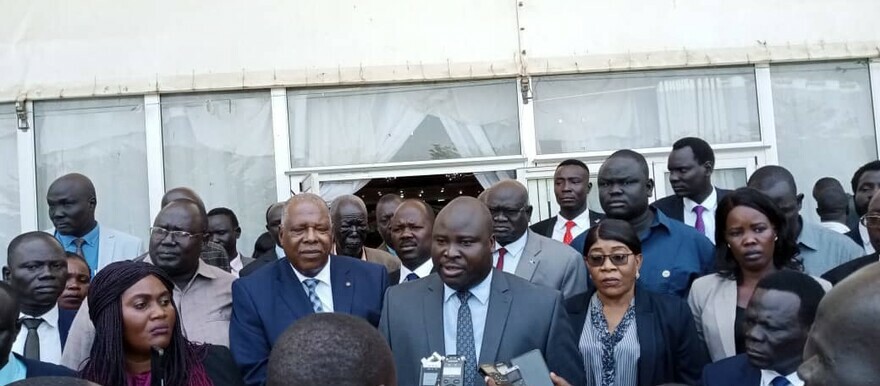Chapter Six of the Political Parties Act, 2012 (Amendment) Act, 2023 talks about the promotion of transparency and the resolution of disputes.
One of the key changes is in Section 29 (3), where provisions concerning the resolution of disputes between members of a political party, disputes between a member and a political party, and disputes arising from party primaries have been modified.
The revised section states that such disputes will be heard and determined by the respective political party initially. However, if a person remains aggrieved by the party’s decision, they have the right to appeal to the Political Parties Council. According to the amendment, the Council will also be responsible for hearing and resolving disputes between political parties, independent candidates, and coalition partners.
The Council’s role in settling political disputes has been further clarified in Section 27. The new provisions, including Sections 45, 46, and 47, outline the procedures to be followed upon the de-registration of a political party or its declaration as a prohibited organization under any law. In such cases, the Secretary General of the Party is required to notify the Council, which will then proceed to make an application to the High Court for the winding up and dissolution of the political party.
The Council will also determine the disposition of the party’s property, assets, rights, and liabilities. The amendments emphasize that the Council shall make just and equitable orders in such situations.
Another significant addition is Section 46, which grants immunity to members of the Council in relation to actions taken or omitted while performing their duties under the Act, except in cases where the police have powers to arrest without a warrant.
To ensure compliance and deter potential violations, Section 47 introduces penalties for political parties that contravene any provision of the Act. Such parties may be fined up to One Hundred Thousand South Sudanese Pounds (SSP 100,000), while individuals convicted of offenses under the Act may face a fine not less than One Hundred Thousand South Sudanese Pounds (SSP 100,000) or imprisonment for a specified term.
Furthermore, Section 48 introduces an amended Oath of Office to be taken by the Chairperson, Deputy Chairperson, and members of the Political Parties Council before assuming their roles. The oath reaffirms their commitment to abide by the Transitional Constitution of the Republic of South Sudan and the law, while faithfully and impartially performing their duties.
It states, “I, having been appointed to the Political Parties Council, swear by Almighty God/solemnly affirm to abide by the Transitional Constitution of the Republic of South Sudan, 2011 (Amended) and the law. I shall be faithful, truthful, and shall perform my duties honestly and impartially, so help me God.”
These amendments aim to enhance the regulatory framework for political parties in South Sudan, ensure fair and transparent dispute resolution processes, and hold parties accountable for compliance with the law. The changes are expected to bolster political stability and democratic practices in the country.




